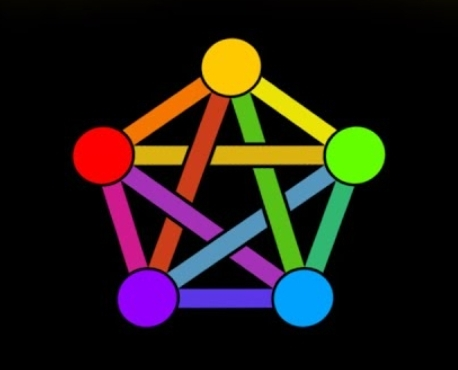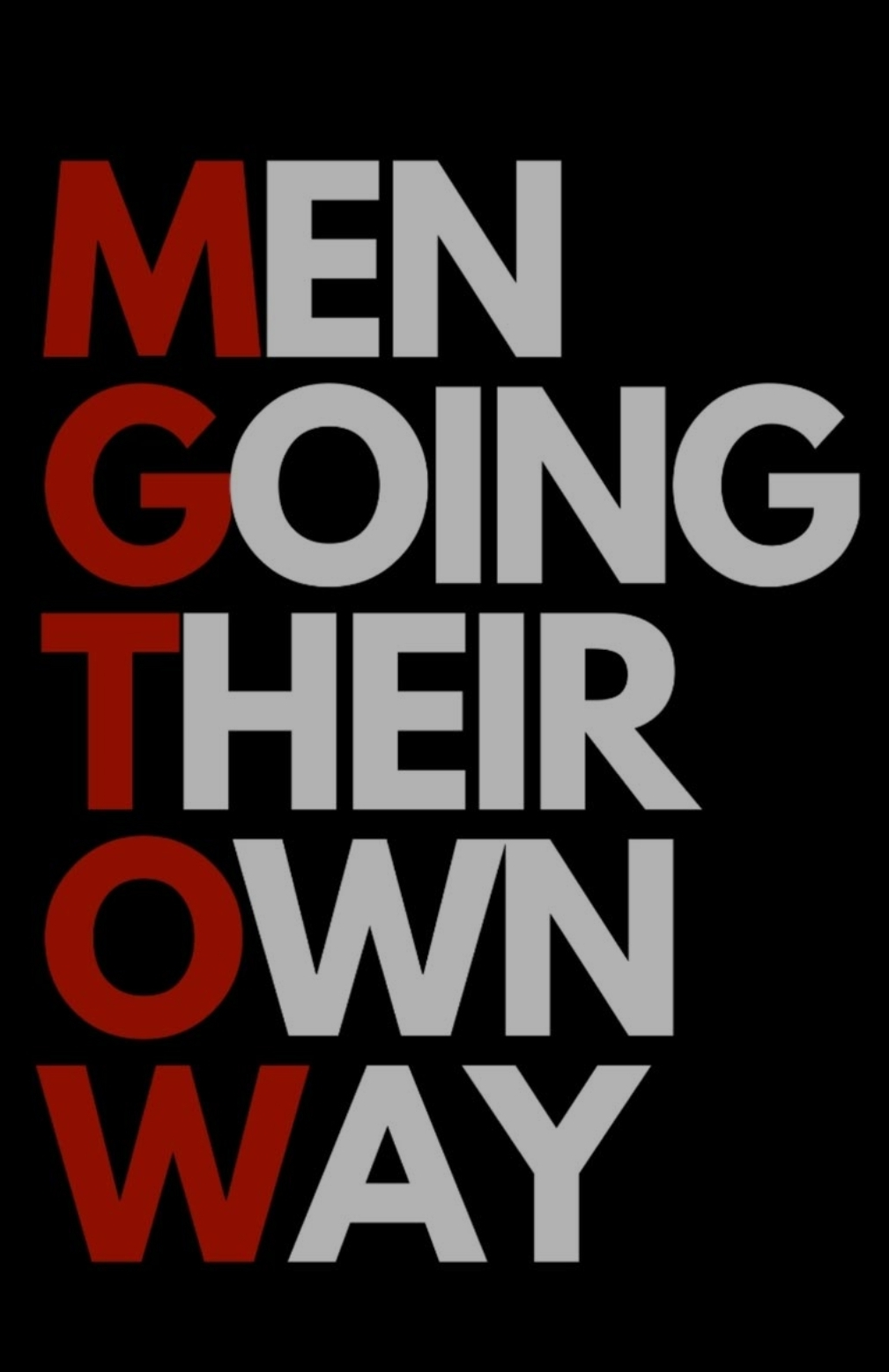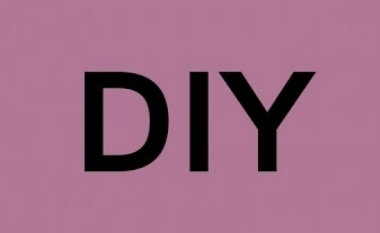- 202 Posts
- 266 Comments

 1·1 day ago
1·1 day agoHonestly I think you agree with him a bit more than you realize, if we reframe the discussion a bit. Presumably you think “big corporations” are out to get you, right? Wealthy people are the same as “globalists” in this discussion… so do you agree “globalists” ARE out to get you? Or do you think rich people who are “exploiting” workers are “on your side”? You don’t have to agree with everyone Jones says here, as I think he is mixing things that aren’t true with those that are, but you do like understand he’s correct on some of these things, right? Like, do you believe in “corporate conspiracy theories” if I reframe it that way? Companies make people sick so they can profit off giving them a cure? Companies messing up the environment so they can make money cleaning it up? So I guess is there any possibility of recognizing disagreements while also identifying points of agreement?

 11·1 day ago
11·1 day agozero hard evidence
Well with Sandy Hook, there were videos like of one of the alleged fathers laughing and then suddenly turning serious for a camera, which led to speculation that these people were acting and not true victims. It was bizarre behavior for someone whose child just died. I get some people saying that everyone handles “trauma” differently.
like this video: https://inv.tux.pizza/watch?v=s-ZfxxPc0r0 (you could substitute youtube.com/ for inv.tux.pizza if you want, it’s just an adless proxy)
Other anomalies were detected like this. Certainly you can connect the dots and understand where these people are coming from in having a theory they may not have absolute proof for? Like evidence of a crime without the absolute surveillance tape that shows the crime happening? A person at the wrong place at the wrong time that a jury could convict, that kind of thing? At least do you understand the perspective such adherents of the theory have? They didn’t have “no reason” to ask questions about facts that didn’t add up, right?
what do you think has substance in contrast?

 1·2 days ago
1·2 days agosometimes there’s metaphors, sometimes literal descriptions
like for example Christ is spoken of as something like a “New Adam” I think, implying a literal Adam and Eve existed and that that story was not purely a tale from a Christian perspective

 12·2 days ago
12·2 days agoThe OP comment may be thought to have done something like this, arguing for subjectivity of claims of truth and yet argued my views of religion were false; I suppose if we allow subjectivity of value to dominate, then we would simply have mutual disagreement

 11·2 days ago
11·2 days agohoping for the best for you, been thinking of you from time to time

 14·2 days ago
14·2 days agoDo you have some of the main points? His role was / is basically to tell certain truths and then misdirect from more important ones. I’m trying to think of what a good analogy is on the left… a lot of the left criticizes big corporations, but doesn’t realize the big government they want to come in and regulate those same corporations is run by the same people? AJ was like a person criticizing big corporations… and then saying, here, let the government (which is run by these corporations) solve these problems… (not going to work out)

 110·2 days ago
110·2 days agothere were a lot of strange things that happened with the incident in question, I’d encourage you to do more research on the topic to see what truly happened

 13·2 days ago
13·2 days agoActually there is evidence for a literal flood
The earth is carbon dated; again it could have been created as such, or the theistic evolutionists are fine with it being old (not reakky proven one way or the other)
“young man not resurrected after being crucified”
again just an assertion with mutual disagreement (not dealing with science)
Indeed Sodom and Gemorrah could have been destroyed by “fiery meteors”, again not a conflict with science (surely it’s logically understood an all-powerful God can arrange such a thing?)
" young man did not transmite wine"
again nothing to do with science, you simply don’t believe supernatural miracles can happen, which is understood.
Yes, the disagreement about the existence of objective morality is different from claiming Christian morals are the “objectively correct” morals.

 132·3 days ago
132·3 days agopretty biased and ridiculous witchhunt, but also Jones is probably not a “conservative” and is just playing a part of being tarred and feathered for the other side’s pleasure. He was just hired to try to make his positions look “ridiculous”. He was kind of funny and pushed some true views though

 44·3 days ago
44·3 days agoI think you may be thinking of someone else; Galileo seems to have simply been a first kind of modern “rebel scientist” who pitted science against religion unnecessarily

 18·3 days ago
18·3 days agotrue science can and very often does contradict religious belief
It does not, which again is part of the fallout of this conflict Galileo was party to, as he gave the impression that there is a contradiction, where there is not. I guess, do you have examples in mind of where there are apparent contradictions? Galileo comes to mind firstly, and it’s pretty easy to see how the scientific findings involved with that are compatible with religion, or how religion has been able to be explained in light of them.
Darwin and evolution come to mind next; some of us simply reject the evolutionary theory of the past, which is not scientific or provable (science is repeatable experiments, and the past is not open for us to experiment with, so while we could model evolutionary processes now, there is no way to prove they were responsible for the creation of the world). Others note that since God is all-powerful, evolutionary theory is not necessary for the creation of the world (a totally powerful God can just create the world “as-is”, even looking like it had been evolved, rather than actually evolving it, if that makes sense). The other route is some embrace “theistic evolution” views where evolution has been accepted as having existed in the distant past and yet it is asserted such evolutionary process has been guided by God.
Whether the earth is the “moral center” of the universe is both unprovable and unproven
Well this gets in to religious discussion probably; it may be “heretical” to claim this. Hence you are arguing from a non-Christian perspective perhaps. Your claim would be subject to the same skepticism you assert.
there are no truths about morality
“It is absolutely true there are no truths about morality” is itself a contradictory assertion. Likewise, many people accept things like stealing to be objectively wrong, and not subjective. Subjectivism opens itself up to many logical problems.

 12·3 days ago
12·3 days agoOur view is basically Vatican 2 was a modernist heretical attack on Catholicism; Lefebvre was the “fake traditionalist” setting up a controlled reaction to this attack, so that the enemy controls both the main attack (Vatican institution) and the “traditional resistance” to it. Vigano strikes me as merely continuing this project for a modern audience, distracting from a logical solution that works.
Lefebvre did commit a “schismatic act” by consecrating bishops without papal permission, in the 80s. Catholics are to obey the pope, and the Vatican’s “popes” are anti-traditional, so he requested permission to consecrate such bishops, and was denied permission. Thus, the situation looked like the false dilemma with the two options of: either you accept a Vatican that was going to destroy the organization he set up to be traditional (so the Vatican is anti-Catholic), or you in some sense recognize the Vatican’s claims to authority while resisting them (arguably not a traditional Catholic view) which is the route Lefebvre went in by both saying he recognizes a certain man as pope (who he is supposed to obey) and disobeys him by consecrating without papal permission (an act of schism in Canon Law I believe, all else equal).
We have argued in contrast Lefebvre’s view is logically contradictory, but that if the Vatican cannot be obeyed, this is an implication it is not Catholic; hence we do not recognize the Vatican as having Catholic legitimacy (like Lefebvre or Vigano do) and also disobey it like they do (but this is because we do not believe them to have any Catholic authority, so they are not to be obeyed).
So while we like Lefebvre’s and Vigano’s traditional-leaning views, they still are not consistent. They seemingly promote rebellion against authority and this creates more confusion and problems. Also, Lefebvre’s SSPX was in many ways only “half traditional”, as they accepted some of the modern reforms that have been made while rejecting others (such as using the 1962 missal, and not requiring the traditional Lenten fast of 40 days which was reduced to 2 days)

 22·7 days ago
22·7 days agohope our mod is doing ok…

 24·9 days ago
24·9 days agoAs noted elsewhere, skin cancer rates have increased with the introduction of sunscreen, perhaps due to carcinogenic sunscreens: https://www.health.harvard.edu/staying-healthy/sunscreen-makers-withdraw-products-found-to-contain-cancer-causing-substance

 21·12 days ago
21·12 days agoWould be curious if anyone has any more info but I think it was kind of an anonymous network that was deanonymized so maybe abandoned? So they changed some things (anonymity not a goal by default but is opt-in) and are trying to relaunch as something a little different.

 2·17 days ago
2·17 days agomcnukes and such

 1·19 days ago
1·19 days agofor that I’ve learned that organized storage is key; ok to have stuff that’s used occasionally if that’s what it’s designed for

 22·21 days ago
22·21 days agomuh polls
muh “felony”
Moderates
























puff the special otherkin